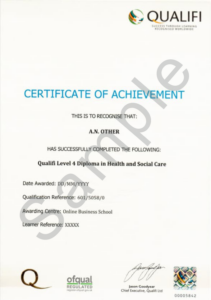Managing people in organisations
Effective management of people within an organisation is essential if the objectives of the organisation are to be achieved. People represent the single most important resource of the organisation and their needs must be understood and respected.
Culture and the organisation
What is culture? What do you associate with culture? Perhaps art and music, perhaps values and beliefs, language and communication, behaviour – in fact, culture is a collection of all of these things. Terpstra and David (1991) define culture as ‘a learned, shared, interrelated set of symbols which unite and identify members of a society’.
Developing personal skills
The manager working in a modern organisation needs a wide range of skills. The manager needs to be able to work with people. This may involve a very wide range of skills in communication, leadership, encouraging teamwork, listening, and so on.
Effective communication
During a typical day a manager is likely to encourage team members, tell them about a change in their future work or conditions, take part in a formal meeting, have an informal conversation at the water cooler or coffee machine, study a strategy planned by senior management, send e-mails to customers or suppliers, and search the Web.
Managing ethically
Unfortunately, it is not always easy to decide on what we mean by ‘the right action’. For example, think of the company that produces excessive amounts of waste in its factory. Closing the factory will harm the employees and shareholders, and will reduce the amount of money available in the local community. Keeping it open without reducing waste will damage the environment for local people and for future generations.
Performance management
The people in an organisation determine whether the organisation is successful or not. Think for a moment about any organisation – in doing this you will also be thinking about people. Every organisation has people within it, and the success of the organisation is largely due to those people.
Strategic human resource management
Human Resource Management is the management of a key resource in the organisation – people. Without people there is a limit to what the organisation can achieve. The machines cannot operate without people to work them (even if they are automatic machines there needs to be a person who programmes them). The raw materials need to be turned into something that can be sold: this requires people. The computers need people to operate them.
High performance teams
In a world of change, uncertainty and complexity, high performance in an organisation requires a blend of diverse skills and experiences. Organisations recognise that this blend is best achieved through team working.
Leadership skills
Good leadership is essential for success in any organisation, whether private or public sector. Today, rapid change, in the form of a constantly changing competitive environment, innovations in technology and changing economic conditions, have led to the realisation that leadership is a skill to be developed.
Motivating and influencing people
Think about two teams carrying out the same activity. Their manager may ask how a series of tasks will be completed to create a product or service. The manager can plan how the work will be done, make sure that the teams have all the right materials, explain everyone’s tasks and deadlines, and measure progress once they get started. However, the two teams will almost certainly not work at the same speed, not create output of the same quality, nor show the same attitude to their work.










